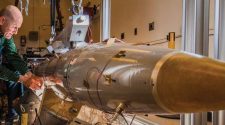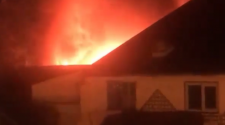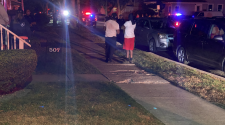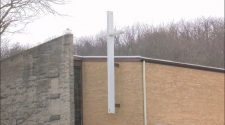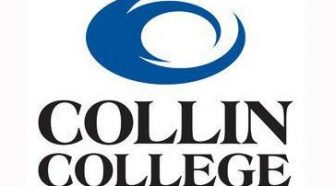Longmont City Council spent more than two hours of its Tuesday night study session hearing presentations and asking questions about wireless meter reading technology.
Council members did not, however, conclude that agenda item with any specific directions to city staff about what they wanted included or avoided in converting Longmont homes and businesses to remote-broadcasting “smart meters,” a multiple-year project estimated to cost about $16 million once completed.
The city capital improvements budgets for that conversion are currently expected to amount to $2.5 million in 2020, $7.5 million in 2021 and $6 million in 2022 — amounts to be covered by a set of electric-use rate increases Council already adopted last December.
Some Longmont residents, as well as residents of some other Colorado communities, have called Council meetings during the past several weeks expressing opposition to the conversion to the new “Advanced Metering Infrastructure” system — people who raised concerns about what they contend will be the negative health and safety impacts of a wireless digital meter-reading system.
One of those critics, Longmont Barberry Drive resident Doe Kelly, called in again Tuesday night to repeat her objections to the health impacts of radiation she said would be emitted by smart meters.
Also raising health warnings was internal medicine specialist Scott Cunningham of Denver, who called into the study session with questions about the validity of studies that Advanced Metering Infrastructure proponents have cited in defense of such a system.
Cunningham said the potential health impact of wireless radiation could pose a costly liability issue for Longmont if it proceeds with its plan.
However, Boulder County Public Health staffer Bill Hayes, one of the presenters on the issue, said non-ionizing radio frequency radiation from smart meters is “many orders of magnitude less” than emissions from cell phones or microwave ovens.
Hayes said he would not say a smart meter “poses zero risk” but that studies indicate such meters have “an acceptable level of risk” and could help Longmont achieve the city’s goal of moving to 100% renewable energy by the year 2030.
But Timothy Schoehle, a Boulder-based scientist who’s been working on an “Energy Management and Metering Architecture” system that he suggested would be more beneficial to Longmont than an Advanced Metering Infrastructure system, said AMI meters have “a high obsolescent rate” before they’re replaced, as well as a risk to the privacy of data about the home’s or business’s electricity use.
Councilwoman Marcia Martin said, “I’m really reluctant to let go of the idea of smart meters.”
Mayor Brian Bagley acknowledged that the study session reports were in response to previous Council requests for more information about the city’s plans for the program, but “I’m having a hard time digesting this.”
Bagley asked staff, “What are we supposed to do with this?”
Dave Hornbacher, executive director of Longmont Power and Communications, said the staff is still working on choosing a technology for the new system, and staff will follow up with Council on that aspect of the conversion.
Late in Tuesday night’s meeting, Council members were in the midst of discussing whether Longmont should impose additional requirements for “accessory dwelling units” on residential properties in existing neighborhoods, such as old-town areas in central Longmont.



